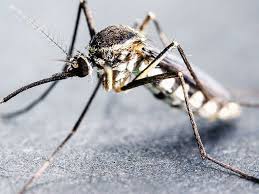
Govt Unveils Comprehensive Strategy to Combat Malaria
Union Minister of State for Health and Family Welfare, Prataprao Jadhav recently informed Parliament about the government's ongoing efforts to tackle malaria through an integrated approach. The Ministry of Health & Family Welfare is actively providing both technical and financial support to States and Union Territories to bolster nationwide malaria prevention.
The government's strategy encompasses several key measures to address malaria in affected regions. Disease management is a critical component, involving early detection of cases through a combination of active, passive, and sentinel surveillance methods. This is followed by complete and effective treatment, enhanced referral services, and preparations for epidemic response and rapid action.
Another significant aspect of the strategy is Integrated Vector Management. This includes targeted Indoor Residual Spraying (IRS) in high-risk areas, deployment of Long Lasting Insecticidal Nets (LLINs) in areas with high malaria transmission, and the use of larvivorous fish and anti-larval measures in urban settings. Bio-larvicides and minor environmental engineering are also employed to reduce breeding sites.
Supportive interventions play a crucial role in the strategy, focusing on Behaviour Change Communication (BCC), fostering inter-sectoral convergence, and human resource development through capacity building.
To achieve its ambitious goals, the government has launched the National Framework for Malaria Elimination (NFME) 2016-2030. This framework aims to eliminate indigenous cases of malaria by 2027 and to sustain this elimination effort through 2030. The NFME underscores the commitment to eradicating malaria and improving public health outcomes across the country.